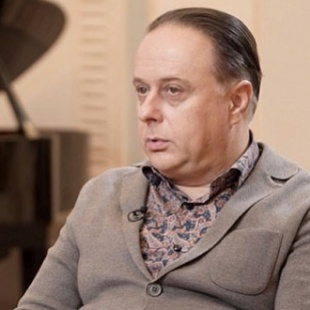Kirill Krok: The Chinese are very fond of Russian culture


Kirill Krok, director of the Eugene Vakhtangov State Academic Theatre, a member of the expert council of the Presidential Fund for Cultural Initiatives, an honored cultural worker and art worker of Russia. He began his theatre career in 1984. He worked as managing director at the Moscow Modern Drama Theatre and was deputy rector of the Moscow Art Theatre School. On 12 April 2010, he took up the post of director of the Eugene Vakhtangov Theatre. Winner of the Star of the Theatre, Crystal Turandot and Stanislavsky International Award. He has been awarded a badge of the Ministry of Culture and the Russian Government Prize for a significant contribution to the development of Russian culture.
In an exclusive interview with TV BRICS, he spoke about how Russian theatre tradition is accepted and understood in the Celestial Empire and whether there will be productions in other BRICS countries. He also outlined the role of culture in the field of international co-operation.
"Princess Turandot" is a play about a wayward Chinese princess, which has become a hallmark of the Vakhtangov Theatre. Recently you announced a big tour to China in the summer of 2024 and even flew to the Celestial Empire for negotiations. How were you met? Were you able to visit the Chinese theatre?
We were met beautifully, because this is our long-standing contact that our theatre has already established with the All-China Association of Touring and Exhibition Activities. We have been co-operating with them for a long time. That's why I flew to China to visit old friends. All our contacts continue, we had a great trip, confirmed all our intentions, signed the relevant documents. Now we are preparing two big contracts for the theatre tour in June next year and in August-September next year.
You are going to perform "War and Peace" and "Eugene Onegin" in 12 cities of China. This is not the first tour of the Vakhtangov Theatre in China. How well do you think the Chinese audience understands and accepts Russian literature and theatre tradition? Do you plan to tour to other BRICS countries?
It seems to me that the Chinese are very fond of Russian culture and literature. The day before, our Chinese colleagues spent a week with us, and they emphasised what they were most interested in, what is related to Russian literature, because in China they know Russian classical literature very well. So yes, we will go on two big touring trips, each of which will last 21 days - we will play four plays in three cities.
Among them is a performance of Eugene Onegin, directed by Rimas Tuminas. During the theatre's pre-China visit, it became obvious that this production is very close to the Chinese audience, because few can boast such success as this production enjoyed with the local public. A fan club was formed in Shanghai during our tour, which has a huge number of followers in its social networks. And despite the fact that three years have passed, this fan club has not ceased to exist. It is actively developing, they take from our site all the information about the tour of the play "Eugene Onegin", about the new performers who appeared in this play, and they place all this on their fan club pages. We have another fan club in Beijing.
As for the second part of your question, about our other foreign contacts, we are holding a lot of talks about travelling to other BRICS countries as well. This is also very important for us. And we will certainly develop this direction.
You are a member of the Expert Council of the Presidential Fund for Cultural Initiatives and you devote time to studying applications for grants in the field of culture, art and creative industries. Do you think that Russian culture, thanks to the support of interesting cross-cultural projects, could one day become a bridge for building international co-operation?
Today on the cultural market of Russia, on the cultural palette of our country there has appeared such a fund, which is the largest and strongest instrument of influence on the cultural policy of the country. It is a tool that opens up new opportunities for young people, for all kinds of institutions and organisations. After all, private entrepreneurs, municipal theatres, museums, and simply charitable organisations can participate in this competition, and they can present their projects on open terms to receive state support.
Even if you did not qualify for the current competition, you can submit your project for the next one, you can refine it. They can consult with you, explain your mistakes. In other words, this is a huge toolkit that is available to all creatively thinking young and not only people who want to get involved in culture and realise themselves in it.
I am sure: if the application is interesting, if the project is properly written, properly composed and properly submitted so that experts can evaluate it, you will definitely receive support.
How does this help in building international co-operation?
I see a lot of applications for international projects related to the BRICS and CIS countries. Cooperation is realised thanks to the support of the Foundation, among other things.
The full interview is available on the TV BRICS website.





































